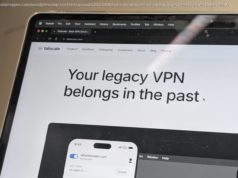The competition regulator stands ready to make a call on pricing if an agreement cannot be reached.
The Australian Competition and Consumer Commission (ACCC) has said it would prefer the company responsible for rolling out the National Broadband Network (NBN) and its retailers to come to an agreement on the contentious connectivity virtual circuit (CVC) charge, but will intervene should the parties be deadlocked.
« The ACCC acknowledges the ongoing industry concerns about NBN Co’s pricing, particularly the level of CVC prices, » the regulator said.
« The ACCC considers these concerns have the potential to impact competition in downstream markets and end-user experiences. Further, there is a risk that these concerns will continue and may even be magnified as the NBN rollout continues and usage increases. »
The comments by the ACCC were contained in a consultation paper [PDF] released on Wednesday seeking feedback to proposed special access undertaking (SAU) variations that would apply to NBN.
Pricing discussions between NBN and its retail service providers (RSPs) were welcomed by the ACCC, who said any agreement between them would be preferable to « any regulatory outcome ».
« However, if a commercial outcome cannot be achieved, the ACCC will consider whether changes to NBN Co’s pricing could be made that would promote more efficient outcomes for NBN Co, RSPs, and for consumers, » the regulator said.
« The ACCC would also welcome further views on whether the current pricing model is reasonable for MTM services given there is more variability and uncertainty about the speeds that can be achieved. »
The consultation paper arrived as a result of the ACCC rejecting NBN’s proposed SAU variations in March, and NBN filing a new set of variations.
In its new filing, NBN addressed the concerns of the ACCC in its prior submission.
« Many aspects of NBN Co’s variation are unchanged, so we’ll continue to take the feedback we’ve already received from stakeholders into account when considering these provisions, » ACCC Commissioner Cristina Cifuentes said.
The amendments to the SAU were proposed by NBN in order for its FttB, FttN, and HFC services to be added to the undertaking.
The recent furore surrounding the NBN, its pricing, and the experience of customers transferring to the network led to Communications Minister Mitch Fifield directing ACMA to conduct research into the matter.
« 21 industry participants including retailers, wholesale providers, and NBN Co Ltd will receive notices seeking a range of data on issues such as fault handling, connection timeframes, appointment keeping, telephone number porting, and more, » Fifield said in a statement on Tuesday.
« This information will be used to identify where customer issues most commonly arise and how those issues can be either avoided or resolved more quickly. It will also help reduce the passing of customer complaints between retailers and NBN. »
On Monday, NBN CEO Bill Morrow hit out at allegations the CVC charge and use of copper in its Multi-Technology Mix are to blame for Australians seeing unsatisfactory speeds when connected to the network, and instead said it was the result of an NBN « land grab » forcing retail service providers to cut costs somewhere.
« The RSPs are between a rock and a hard place, » Morrow said.
Morrow said retailers were involved in a land grab for market share, where pricing was the focus, and not speeds or quality of service.
« If an RSP doesn’t price their product high enough to recover their costs, they may be forced to cut corners that could affect the quality of the services being offered, » he said.
« If an RSP isn’t purchasing enough CVC capacity to offer the quality expected, that is a conscious choice to do so. »
In December 2013, the ACCC approved the price of the CVC to be set at a maximum of $20 per Mbps per month.
The closing date for submissions to the ACCC on the revised NBN filing is August 25.






